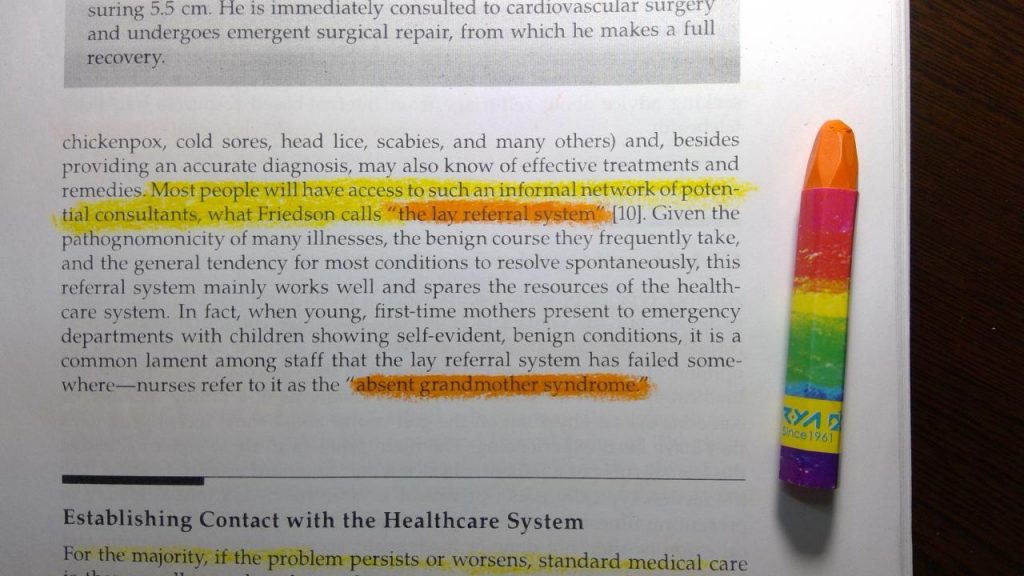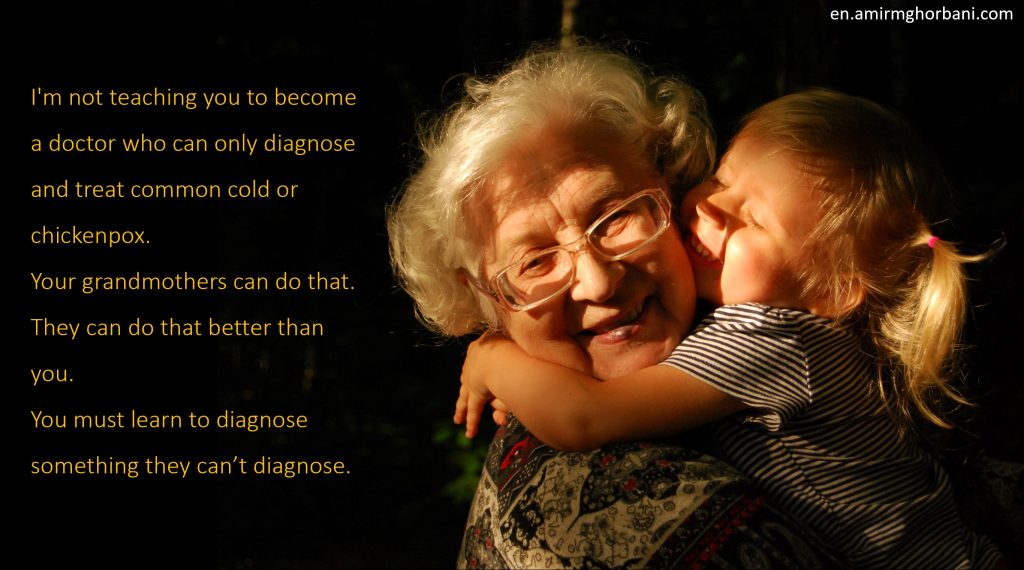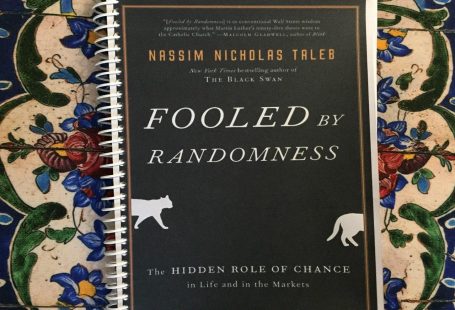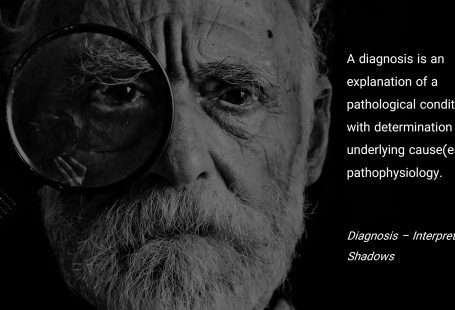My grandparents had a beautiful house. In the front yard, there was a cherry tree, a couple of orange trees, and a tree which is called Azgil in Persian – found the word common medlar for it; but they are not the same.
I spent a considerable amount of my childhood there.
For almost any medical condition, she had a home remedy.
I remember one of them specifically.
We were having lunch – my grandparents and me. She was an excellent chef and had made fish and rice. Suddenly, I ingested a fishbone.
It had happened before. Due to being next to the Caspian Sea, we had fish for our meals a couple of times a week and fishbone ingestion was pretty common.
But this time, the fishbone was stuck.
I was scared and the scratching made by bone had added pain to the fear too.
She, however, was calm. She grabbed the skimmer and took a piece of Tahdig (a kind of scorched rice) with it and gave it to me.
“Just eat this. it will move the fishbone down to the stomach”, she said with a smile.
She was right; although I never used this method for kids with foreign body ingestion in the emergency department.
Eating Tahdig was her home remedy for foreign body ingestion.
This memory, I think, is for 20 years ago. Reading about something called “absent grandmother syndrome” took me to it.
My grandmother was an important consultant in our lay referral system.
As Pat Croskerry wrote in the 4th chapter of the Diagnosis:
In all societies, ancient and modern, a lay referral system has been developed and is usually available to diagnose common disorders. It is based on a network of family, friends, and acquaintances.
The hands-on primary care physician is the hinge between the lay and the professional referral system.
Diagnosis – Interpreting the Shadows
The term is coined by Eliot Freidson (+).

When young, first-time mothers present to emergency departments with children showing self-evident, benign conditions, it is a common lament among staff that the lay referral system has failed somewhere – nurses refer to it as the “absent grandmother syndrome.”
I remember the days of being a 4th year medical student.
In the pediatric ward, there was a professor – a neurologist – who always was looking for the slightest opportunity to remind us:
I’m not teaching you to become a doctor who can only diagnose and treat common cold or chickenpox.
Your grandmothers can do that. They can do that better than you.
You must learn to diagnose something they can’t diagnose.



6 comments On Absent Grandmother Syndrome
By reading this text, all the effective diagnosis and treatments of my grandmothers were reviewed in my mind from childhood until now 🙂
What’s interesting to me is that they trust their knowledge, they use it with complete confidence, and it’s really true. I hope you understand what I mean.
When I started reading your post, I was thinking only about the emotional absence of that clam and secure feeling we have/had when we are/were with grandparents. After reading your post, I was thinking about what are other aspects that we are missing without grandparents. Old people, whether we are related to them or not, are full of experiences and wisdom that we can learn from; however, with these days’ of lifestyles sometimes I feel like we are losing a lot since we are not using that opportunity well enough. Specifically, the generation of our grandparents who have lived in the time of no water, no electricity no internet and also in the time of video calls, washing machines, and wifi, are the ones who can tell us the differences, the advantages, and disadvantages. I believe listening to grandparents can teach us much more than we think/expect. We can change the course of our life and thoughts wisely. It can help us how to do a trade-off between old fashion habits and technology-based ways of doing stuff.
Zahra. We’re on the same page here.
Unfortunately, however, I’ve got no grandparents left. My best childhood memories are those with my grandmother. These days, many times, I find myself fantasizing about a world when she still is here and we are talking about short stories of Brothers Grimm and folktales of North of Iran.
Dear doctor ghorbni I remember a period of time that I couldn’t see my grand parents because of some special situations and the same as you said I’ve been raised in such a memorable home. Despite I was a little bit depressed because of that situation I thought with myself that why am I experiencing such an emptiness. This was the beginning of my familiarity with the world of deep meanings and Psychology. in this endless journey I’ve found your personal website and by means of your website I’ve understood that I’m not alone in my way and I could see some other people (although they were few) in my country that despite the tough historical condition in our country they are leading wars and peaces inside their mind and share some parts of it with others (like a candle in the darkness). I want you to know that I appreciate and value your passionate of writing about the conditions you see around yourself. I have a request. If you could, please answer my comment with a comment about your first familiarity with Psychological subjects. I guess putting names on different human emotions might make them more formal for us but in some ways names do not consider some deeper layers of emotions. what do you thing about that?
thanks for your attention
Freud once said: “The chief patient I am preoccupied with is myself…”. This holds true for me too.
As you know, putting a name on emotion is just a start. But it’s a good starting point. I think, esp in everyday conversation in Persian, we don’t use enough words for our emotions:
“How are you? fine/good/not bad/bad”. It’s not really enough. This is too shallow to be able to describe us.
On another aspect, one of the “PRESENT grandmother syndrome” medications, is tea with nabat(rock candy) that is good for any type of disease :))) and It’s similar to arbitrary dexamethasone prescription for patients in most cases at the referral system.